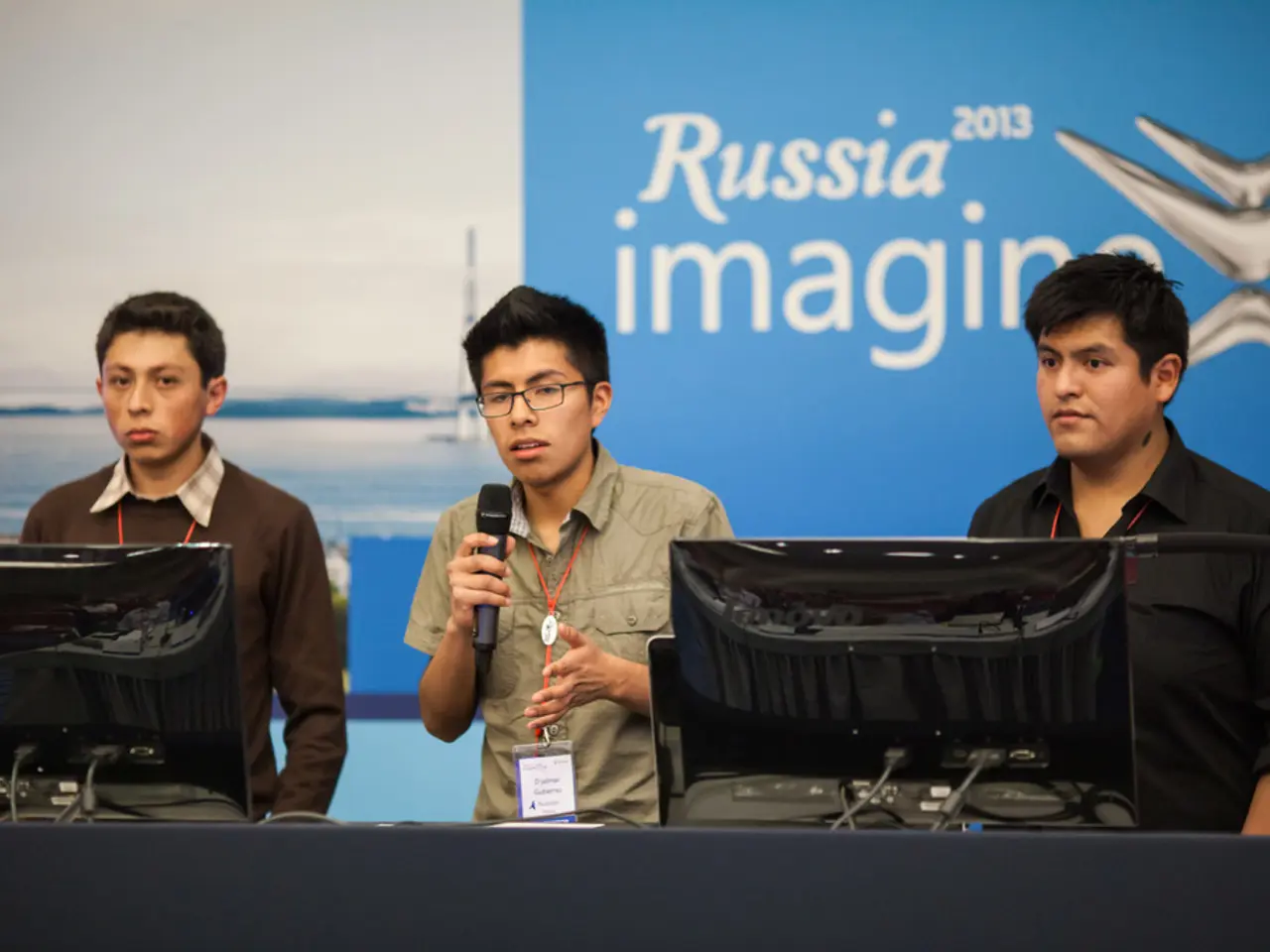Russia imposes limitations on WhatsApp and Telegram voice calls
Russia has imposed restrictions on voice and video calls on messaging services Telegram and WhatsApp, citing these services as tools used for "deceiving, extorting money, and involving Russian citizens in sabotage and terrorist activities" according to Roskomnadzor, the country's internet regulator[1][3]. This move forms part of a broader government strategy to control online information flow and steer users towards a Kremlin-backed domestic messaging app called Max, which resembles China’s WeChat and will soon be pre-installed on devices in Russia[1][5].
The implications of this action are significant for both digital sovereignty and user privacy:
- Digital Sovereignty: By restricting foreign apps and promoting a government-controlled platform, Russia aims to assert greater sovereignty over its digital space, ensuring that data and communication remain within state jurisdiction, which can enhance government control and surveillance capabilities[1][5].
- User Privacy: These restrictions disrupt users’ access to encrypted, widely trusted services like Telegram and WhatsApp, pushing them towards apps where privacy protections may be weaker or more closely monitored by authorities. This raises concerns about the erosion of secure private communication for Russian citizens[1][5].
The restrictions have already caused real hardship, especially among elderly people, remote workers, and vulnerable populations who relied heavily on these apps for personal and professional communication. Many users express frustration and a sense of digital isolation, with some comparing the situation to being locked in a "digital prison"[2]. The move also complicates everyday life and business communication, impacting the economy and social ties[1][2][4].
The government in Moscow aims to strengthen its digital sovereignty with this new app, as the conflict escalated after Russia's invasion of Ukraine in February 2022. There are indications that Russia may throttle the speed of WhatsApp to encourage users to switch to the new state-supported platform[6].
Statements from Meta, which owns WhatsApp, and Telegram were not initially available. The dispute between Russia and foreign technology platforms, including Meta and Telegram, continues.
References: [1] The Guardian. (2022, March 30). Russia bans voice calls on WhatsApp and Telegram to promote state-backed app. [online] Available at: https://www.theguardian.com/world/2022/mar/30/russia-bans-voice-calls-on-whatsapp-and-telegram-to-promote-state-backed-app
[2] BBC News. (2022, April 1). Russia blocks WhatsApp and Telegram voice calls in privacy crackdown. [online] Available at: https://www.bbc.co.uk/news/world-europe-60832341
[3] Reuters. (2022, March 30). Russia blocks WhatsApp, Telegram voice calls, citing security concerns. [online] Available at: https://www.reuters.com/world/europe/russia-blocks-whatsapp-telegram-voice-calls-citing-security-concerns-2022-03-30/
[4] The Hill. (2022, April 1). Russia's move to block Telegram, WhatsApp voice calls could have far-reaching implications. [online] Available at: https://thehill.com/policy/technology/3147020-russias-move-to-block-telegram-whatsapp-voice-calls-could-have-far-reaching-implications/
[5] The New York Times. (2022, March 31). Russia Blocks Voice Calls on WhatsApp and Telegram. [online] Available at: https://www.nytimes.com/2022/03/31/world/europe/russia-whatsapp-telegram-calls.html
[6] The Verge. (2022, April 1). Russia is throttling WhatsApp to push users to its own messaging app. [online] Available at: https://www.theverge.com/22372517/russia-whatsapp-throttling-max-app-voice-calls-data
- Cybersecurity concerns arise as Russia's restrictions on voice calls on Telegram and WhatsApp might lead to weaker privacy protections for users, as they are encouraged to switch to a state-supported app.
- I'm not going to be able to talk to you via WhatsApp and Telegram, as Russia has imposed restrictions on these services, prioritizing a government-controlled platform for digital communication.




